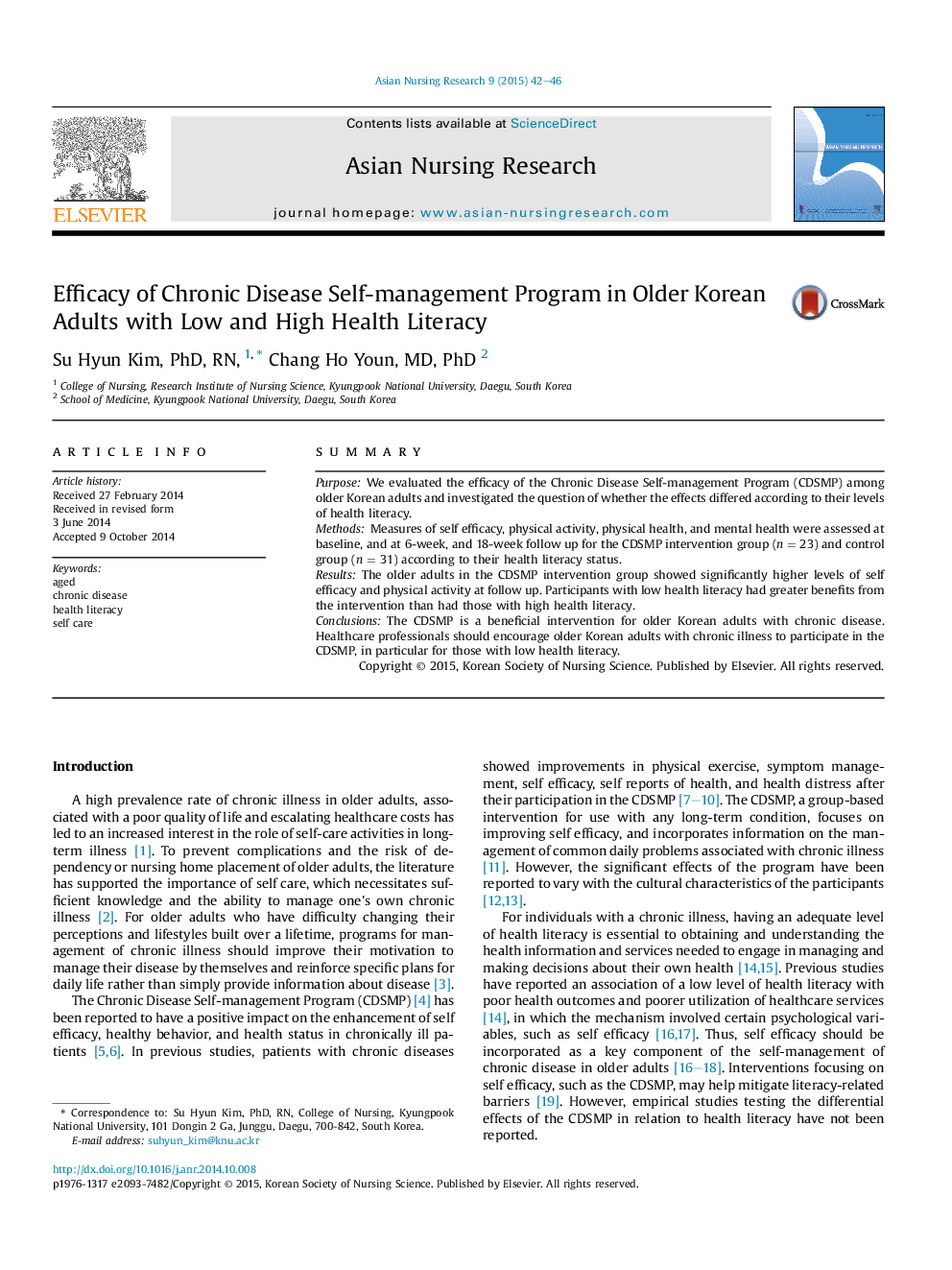| کد مقاله | کد نشریه | سال انتشار | مقاله انگلیسی | نسخه تمام متن |
|---|---|---|---|---|
| 2644979 | 1138454 | 2015 | 5 صفحه PDF | دانلود رایگان |
کلمات کلیدی
مقدمه
روشها
طراحی مطالعه
تنظیم و نمونهبرداری
جمعآوری دادهها و روش
جدول 1 بررسی اجمالی برنامه خود مدیریتی بیماریهای مزمن
ملاحظات اخلاقی
معیارها و ابزارها
تجزیه و تحلیل دادهها
نتایج
ویژگیهای جمعیتشناسی شرکتکنندگان
جدول 2 مشخصات اصلی شرکتکنندگان در گروههای مداخله (n=23) و شاهد (n=31)
تغییر در معیارهای پیامدی
تفاوتهای ناشی از سطح سواد سلامت
جدول 3. اثرات CDSMP بر روی خودکارآمدی، ورزش هوازی ، امتیاز وضعیت جسمی و امتیاز وضعیت روحی (n=54).
بحث
جدول 4. اثرات CDSMP بر اساس سطح سواد سلامت (N=23)
نتیجهگیری
SummaryPurposeWe evaluated the efficacy of the Chronic Disease Self-management Program (CDSMP) among older Korean adults and investigated the question of whether the effects differed according to their levels of health literacy.MethodsMeasures of self efficacy, physical activity, physical health, and mental health were assessed at baseline, and at 6-week, and 18-week follow up for the CDSMP intervention group (n = 23) and control group (n = 31) according to their health literacy status.ResultsThe older adults in the CDSMP intervention group showed significantly higher levels of self efficacy and physical activity at follow up. Participants with low health literacy had greater benefits from the intervention than had those with high health literacy.ConclusionsThe CDSMP is a beneficial intervention for older Korean adults with chronic disease. Healthcare professionals should encourage older Korean adults with chronic illness to participate in the CDSMP, in particular for those with low health literacy.
Journal: Asian Nursing Research - Volume 9, Issue 1, March 2015, Pages 42–46
